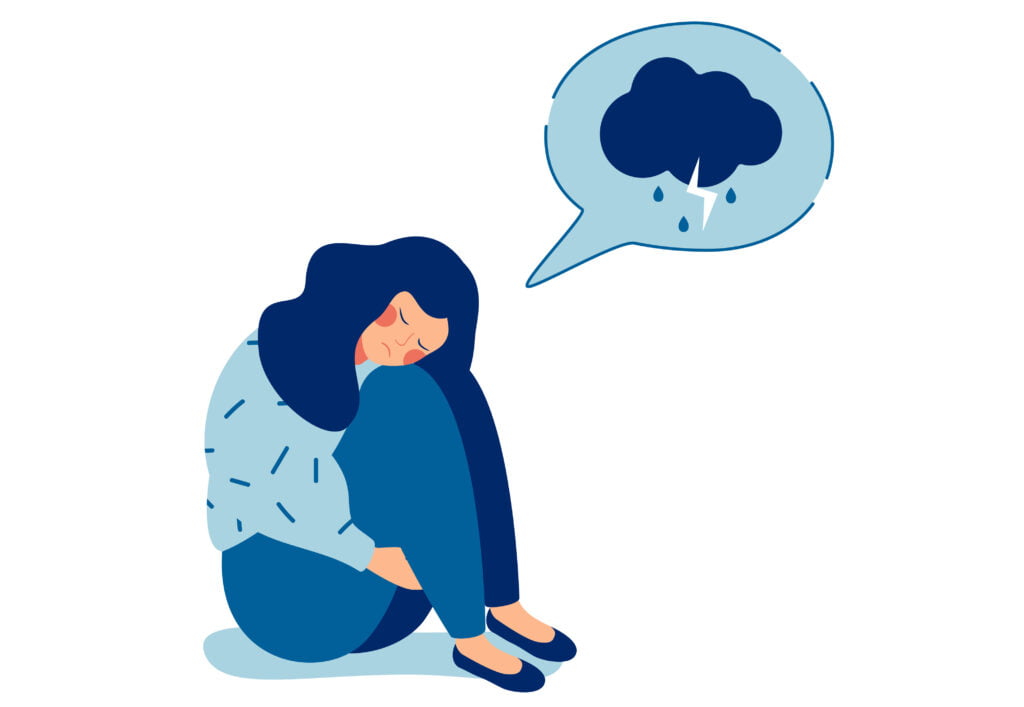Mental has long been understood. Thankfully, over the past couple of decades, the world has become more aware of just exactly how mental health affects people. While there is more awareness surrounding mental health, still, there are many misconceptions that people have about mental disorders and their effects. We’re here to help you learn more about mental issues by running through the most common myths.
Myth 1: People with mental health problems can be violent and unpredictable
One of the most common and harmful myths about mental health is that those who are diagnosed with mental health issues can be violent. This is not true, and people with severe mental illnesses are more likely to experience violent crime than those who do not have a mental illness. A very small percentage of violent acts can be tied to those suffering from severe mental illness.
Myth 2: Children do not experience mental health problems
Many people think that adults are the only people who can be diagnosed with mental health issues. This is not true because even young children can show early signs of mental health concerns. Studies have shown that almost half of mental health disorders show first signs before a person turns fourteen years old. Mental health problems in children are often clinically diagnosable and can be a product of biological, psychological, and social factors.
Myth 3: Mental health problems indicate weakness
Like physical illnesses or disorders, mental illnesses do not indicate emotional weakness. Mental disorders are illnesses and are not to be seen as signs of poor character. For example, there is a sense of insensitivity surrounding those who suffer from depression. They cannot just “snap out of it” any more than someone who suffers from a physical illness. If anything, fighting a mental illness requires a great deal of emotional and mental strength.
Myth 4: Only people without loved ones or friends need a therapist
Therapists are designed to help anyone, whether their patients are surrounded by a large or smaller group of friends. Although, both talking to a therapist and opening up to friends and loved ones can be very helpful to those dealing with a mental disorder. Another thing to understand is that some people struggle with opening up to loved ones, which is why they may opt for help from a therapist.
Myth 5: Mental health problems are permanent
Not all mental health illnesses become life-long. Everyone’s experience with mental illness is different. Some people experience episodes or seasons of mental illness and could return to how they were prior to being diagnosed. Most people who deal with mental illness receive treatment and are discharged once they show they have recovered from debilitating symptoms of mental disorders. On the contrary, some people may feel they have not completely recovered from a mental illness and may require more time.
Myth 6: Mental illnesses and disorders are uncommon
One reason mental illness may seem uncommon is the communication surrounding mental disorders. In fact, mental illnesses have become more common than ever before. In 2001 alone, the World Health Organization (WHO) estimated that one in four people will be diagnosed with a mental disorder at some point in their life. As of October 2020, data from WHO showed that 450 million people were experiencing mental disorders.
Myth 7: Addiction is a lack of willpower
Addiction does not indicate weakness, temptation, or willpower because addiction is considered a chronic disease. Researchers have found that a lack of willpower is not a factor when it comes to overcoming addiction. Recovering from addiction is dependent on developing strategies to withhold willpower by controlling the person’s surroundings and environment.
Myth 8: All people with schizophrenia have split personalities
People may think those diagnosed with schizophrenia have a split personality because schizophrenia directly translates to “splitting of the mind.” However, schizophrenia, according to WHO, is described as distortions in thinking, perception, emotions, language, sense of self, and behavior. With that, it is especially important to understand that schizophrenia is not the same as dissociative identity disorder, formally known as multiple personality disorder.
Learn More About Mental Wellness with Our Professionals
Mental health is a sector of its own in health and wellness. Because of that, it is important to educate yourself about mental health and how mental illnesses affect people. Here at Latinx Talk Therapy, we’re here to guide our patients in addition to treatment. Contact us today to learn more.






